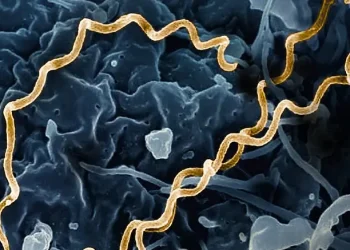Imagine discovering that a routine prenatal test could save two lives instead of one.
A groundbreaking study by the National Institutes of Health (NIH) reveals that prenatal cell-free DNA (cfDNA) testing, typically used for detecting fetal chromosomal abnormalities, can also detect hidden cancers in expectant mothers.
This dual-purpose screening could reshape prenatal care by identifying cancers early, potentially improving outcomes for both mother and baby.
How Prenatal Testing Detects Maternal Cancer
Prenatal cfDNA testing analyzes fragments of DNA from the placenta circulating in the mother’s bloodstream. Designed to detect fetal conditions like Down syndrome, the test occasionally flags abnormal DNA patterns that may originate from the mother.
According to NIH researchers, 48.6% of participants with unusual test results were diagnosed with cancer, spanning colorectal, breast, lung, pancreatic, and rarer types such as lymphoma and cholangiocarcinoma.
Types of Cancers Detected
The range of cancers discovered underscores the potential of cfDNA testing to serve beyond its intended purpose. The cancers identified in the NIH study include:
- Colorectal, breast, and lung cancers, which are among the leading causes of cancer-related deaths in the U.S.
- Rare cancers, including renal carcinoma and lymphoma, often challenging to detect in their early stages.
Such findings suggest that prenatal testing could help diagnose cancers earlier than traditional methods, giving patients a head start on treatment.
Diagnostic Effectiveness: MRI vs. Traditional Methods
The study demonstrated that whole-body magnetic resonance imaging (MRI) outperformed conventional diagnostic tools in identifying cancer. Standard methods—like taking a medical history and physical examinations—were less effective.
For instance, in cases where routine check-ups failed to pinpoint the problem, MRI scans provided detailed insights into tumor locations.
Comparison of Diagnostic Methods |
Effectiveness |
|---|---|
| Whole-body MRI | High |
| Physical Examination | Low |
| Medical History Assessment | Low |
| cfDNA Sequencing | Moderate to High |
This evidence suggests a shift toward integrating advanced imaging techniques in prenatal care when abnormal cfDNA results arise.
Implications for Prenatal Care
Dual-Purpose Screening Benefits
The dual-use nature of cfDNA testing has the potential to transform maternal healthcare by offering:
- Early cancer detection during routine prenatal screenings, enhancing treatment options.
- Comprehensive prenatal care that addresses both fetal and maternal well-being in a single test.
These advantages could lead to earlier interventions and better survival rates for pregnant women diagnosed with cancer.
Challenges and Ethical Considerations
While promising, this approach presents ethical dilemmas. Should patients always be informed of incidental cancer findings? What protocols should guide follow-up care? These questions remain at the forefront of evolving prenatal care standards. Additionally, the risk of false positives, though low, warrants caution to avoid unnecessary anxiety or invasive procedures.
Future of Maternal Cancer Screening
The NIH study calls for further research to refine cfDNA testing for maternal cancer detection. Investigators emphasize the need for more extensive studies to validate these findings and establish clear guidelines for integrating cancer screening into routine prenatal care.
By expanding research, healthcare providers could one day offer comprehensive prenatal tests that not only ensure fetal health but also safeguard the mother’s well-being.
This evolution in prenatal care represents a significant leap forward in early cancer detection and maternal health management.
Final Thoughts
Prenatal testing has long been a cornerstone of modern obstetrics, but the potential to detect maternal cancers introduces a new dimension of care. As research advances, expectant mothers may benefit from dual-purpose screenings that protect both themselves and their babies.
This innovation could mark a turning point in prenatal healthcare, prompting broader discussions about early detection, ethics, and the future of maternal medicine.
For more information on prenatal cancer screening advancements, explore further NIH resources or consult healthcare professionals specializing in maternal-fetal medicine.
Sources: THX News & National Institutes of Health.









